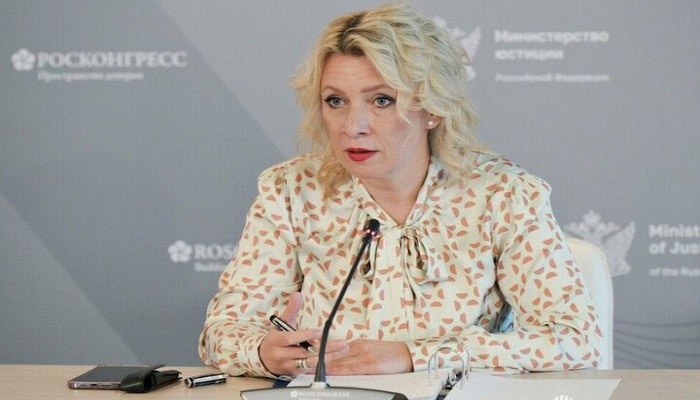PNN – The spokesperson for the Russian Foreign Ministry has called the European troika’s move to restore UN sanctions against Iran a “trick,” saying that the Europeans bypassed Resolution 2231 and engaged in legal sleight of hand.
According to the report of Pakistan News Network, citing TASS, Maria Zakharova criticized Germany, the UK, and France for attempting to reinstate outdated UN sanctions on Iran, asserting that their legal validity is questionable.
Zakharova noted in a Telegram post that the issue concerns the snapback mechanism, which is intended for the immediate reactivation of UN sanctions against Iran. She said the Europeans circumvented the dispute resolution process outlined in Resolution 2231, calling it a “trick.”
Read more:
US Secretary of State makes claims following activation of the snapback mechanism
The Russian diplomat added that parties should first address claims through the established dispute resolution mechanism, and only if all avenues fail should the matter be referred to the UN Security Council. Contrary to the European claim, this process was ignored, with London, Paris, and Berlin skipping these steps and submitting a paper directly to the Security Council—a move she described as deceptive under international law: “If you violate the rules yourself, you forfeit the right to use the mechanisms contained within them.”
Zakharova explained that the Europeans sent a letter to the Security Council on August 28, and on September 27, the 30-day period expired. The UN Security Council did not adopt a resolution preserving Iran’s exemptions from restrictions and sanctions, which London, Berlin, and Paris interpreted as the official end of the waivers. With the nuclear deal set to expire on October 18, the Europeans rushed to push their decision before Russia assumed the Security Council presidency. Russia and China opposed the move, emphasizing both political and legal integrity.
She noted that Moscow and Beijing made their final attempt on September 26 to preserve the legitimacy and effect of UN Resolution 2231.
Zakharova added that the European action could have allowed time for a diplomatic solution and prevented unpredictable escalation. However, European urgency, driven by the approaching expiration, led them to act hastily, and the Security Council resolution was not renewed, with the West voting against it.
In conclusion, she stressed that the Europeans violated two fundamental principles of international law—“pacta sunt servanda” (obligation to honor agreements) and the “clean hands doctrine”—endangering the international system of checks and balances.

